Top 5 endangered fishes that you should know
Nowadays there are several species of animlas that have experienced a significant decline in their number of living specimens.
This is true for many species of animals, and in the world of fishes it happen the same.
Many are even already in the group called endangered especies or endengered fishes.
In this article we want to talk to you about 5 species of fish that are in danger of extinction.
According to the International Union for Conservation of Nature (IUCN), there are currently twenty-eight thousand species of animals in danger of extinction.
The main reasons why fishes are in danger of extinction are the indiscriminate exploitation of their habitats, climate change and pollution.
Let’s take a look at some of these endangered fish species below.
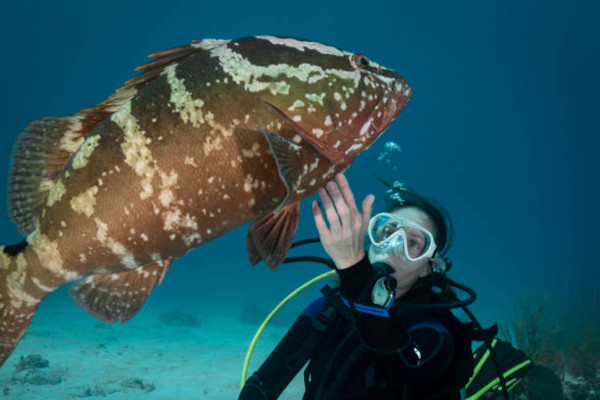
Marlin fish
The marlin fish is our endangered fish number one.
In relation to billfish, three species are listed in the vulnerable category: blue marlin, white marlin and striped marlin.
The report states that “as these are at the top of the food chain, their population reduction can have significant negative effects on other species that are essential for the balance of the marine ecosystem and economically important as a source of food.”
Some businesses such as hotels and supermarkets decide to stop selling these species in their restaurants and fishmongers in order to counter their disappearance.
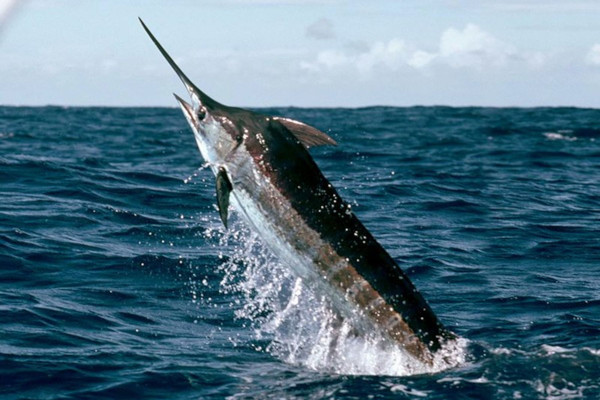
See also Istiophoridae
Coral frogfish
This is one of the animals in danger of extinction. An endemic species of the island of Cozumel (coast of Mexico).
You will easily recognize it by its striking color. Also, it has a dark body crossed with lighter lines, and its fins are bright yellow.
Its natural habitat is coral reefs, so their destruction has contributed to the decline in the frogfish population.
It is in danger of extinction due to problems related to coral, which is its habitat, and it is also affected by the effects of pollution.
five endangered fish species- marlin fish
If you want to know more about marine life in Costa Rica, sign up for one of our tours
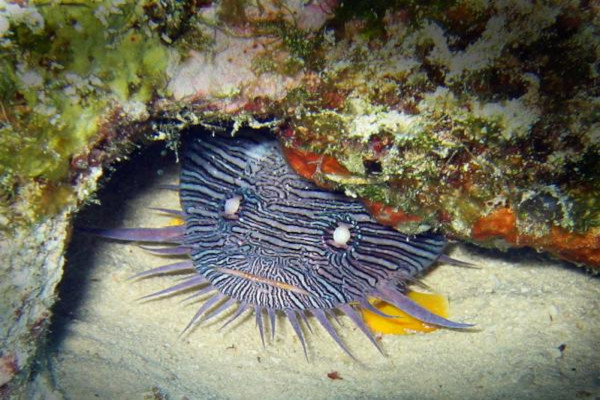
Napoleon fish
On our list of endangered fish is the Napoleon Fish.
It inhabits the Pacific and Indian oceans. The International Union of Endangered Species (IUCN) points out that it is estimated that there are between 10 and 20 specimens per hectare in their natural habitat, that is, their population density is very low.
The humphead wrasse lives on reefs and feeds on crustaceans. It is in danger of extinction mainly due to illegal fishing.
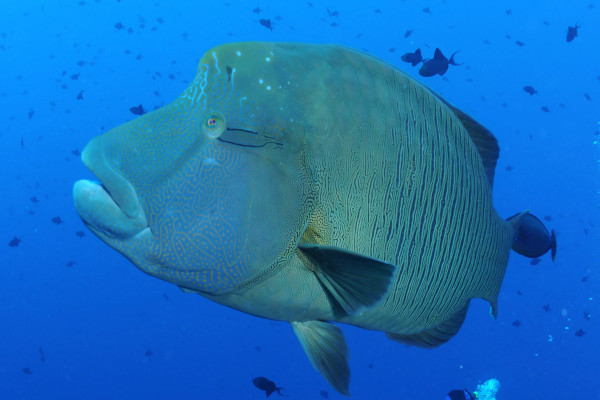
Sawfish comb
This specie of fish had a reduction in its population density. It’s natural habitat is the Atlantic Ocean and the Caribbean Sea.
The sawfish comb measures between 500 and 650 centimeters in length and one of its most striking features is its elongated and thin trunk.
They live in fresh and salt waters. But, today, they were almost erased from most of the areas where they lived years ago.
Those fishes are also in critical danger of extinction due to indiscriminate fishing.
This due the changes that were in its habitat by the action of man.
An estimate is made that its population decreased by 95% over the last three generations.
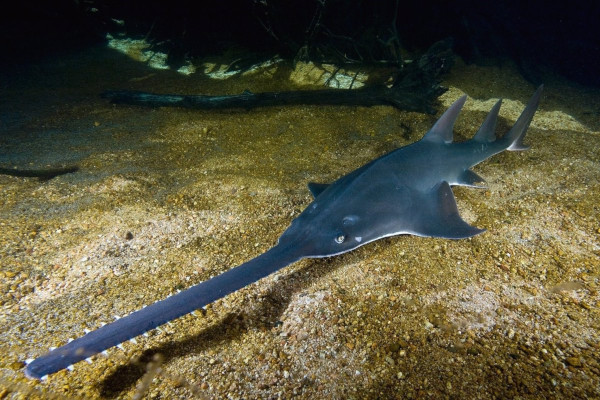
Nassau Grouper
Among the endangered fish we also find the Nassau grouper.
Recreational fishers and traders highly value this fish. There is a strong fishing pressure on it, which caused decreases in its existence in most of the countries where it abounded naturally.
Declines have been equally severe in areas such as Bermuda, the continental United States (southern Florida), the Dominican Republic, Belize, Honduras, Jamaica, the Cayman Islands, and the US Virgin. Islands.
In places like the Turks and Caicos Islands, fishing effort has been relatively low.
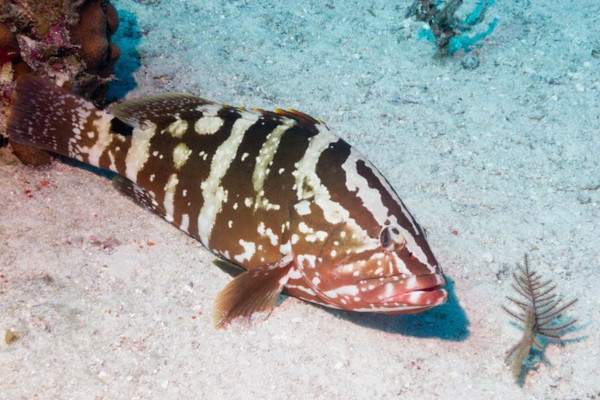
Heroes of the Sea: Brice and Christy Semmens and the Nassau Grouper
For more than 10 years, these two marine biologists have dedicated their lives to saving one of the most iconic fish in the Caribbean, the Nassau Grouper.
Through the project “La luna de Mero” developed by REEF (Reef Environmental Education Foundation), they attempt to protect and rescue the populations of this marine species in the Caribbean.
The Nassau grouper is a critical species for the ecological and social balance of the Caribbean. As the main reef predator, the species plays a very important role in the ecosystem.
The Nassau grouper was long a part of traditional sustainable fisheries, which pointed to the predictable spawning concentrations of these animals.
However, the new technologies used and unbridled fishing are causing a serious crisis for the species.
Currently, spawning concentrations of the Nassau Grouper are minimal.
An opportunity for the Nassau Grouper
For the last 15 years, Brice and Christy have developed the recovery project in the Cayman Islands, where the species was almost extinct.
However, progressive management of the species during this time, a partnership of research and education supported by foundations, academic institutions and the government, have resulted in the Cayman Islands today having the largest population of Nassau Groupers in the world.
Through their work, Brice and Christy have shown that progressive management, action-oriented research, and community education can foster rapid species recovery.
The challenge now is to replicate the success achieved in the Cayman Islands throughout the Caribbean.
Ensure that other countries can adopt measures in order to protect and regenerate the Nassau Grouper.
AWARE Project: What was the global AWARE week about?
Today we celebrate the work of Brice and Christy. His passion and dedication to this project have made it possible for a critically endangered species to have hope of surviving today.
If you want to know more details about the project, you can find the full interview with Brice and Christy in this article on scubadiving.com.
Read more about this project
To see lots of species of fishes take a tour to Isla del Caño in Costa Rica
